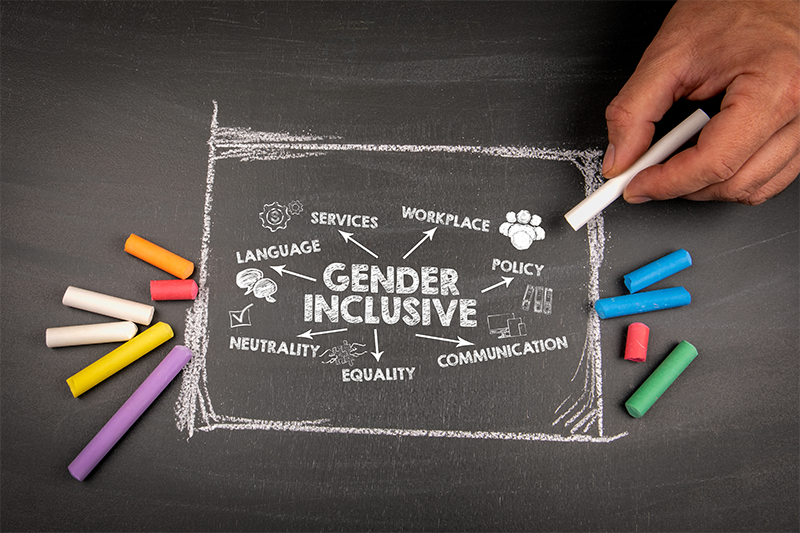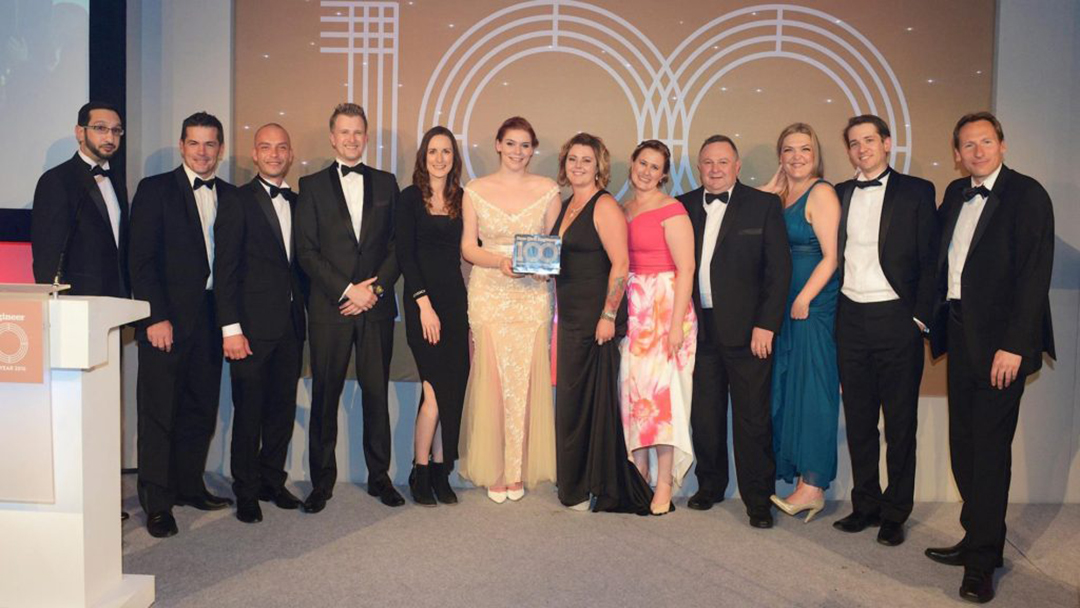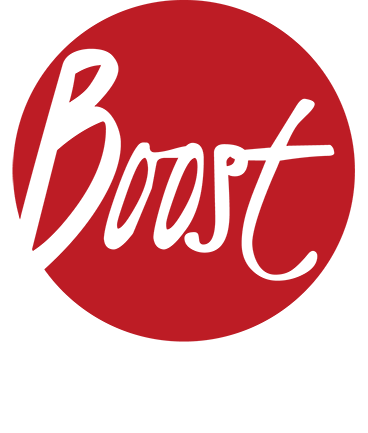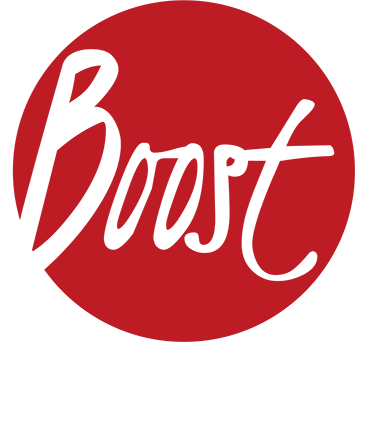The Times Top 50 Employers for Gender Equality

Emma Turnbull
Managing Consultant, Boost
What is The Times Top 50 Employers for Gender Equality?
The Times Top 50 Employers for Gender Equality, organised by Business in the Community (BITC), recognises employers dedicated to creating workplaces where everyone can succeed, no matter their gender. Each year, this leading, long-standing programme reviews company policies, practices, and culture in important areas related to gender equality and inclusion, regularly updating its criteria to match current best practices and changes in work environments.
Many of the UK’s largest and best-known companies take part, collectively representing millions of employees: roughly 4-8% of the national workforce. The list is presented alphabetically, and participants receive a comprehensive report which highlights their strengths and offers recommendations for further improvement, serving as a valuable resource for ongoing progress.
History and significance of the list
The Times Top 50 Employers for Gender Equality was launched by Business in the Community (BITC) in 2011, marking its debut as the UK’s annual flagship recognition for organisations actively advancing gender equality in the workplace.
The list matters because it elevates gender equality from a policy discussion to an operational business priority: by challenging employers to embed inclusive practices across recruitment, pay, progression and culture, it helps shift workplace norms and drives measurable progress in how organisations enable everyone – regardless of gender – to thrive.
Over time, this list has evolved in both scope and ambition. Although originally titled the “Top 50 Employers for Women”, it was re-branded to “Top 50 Employers for Gender Equality” to reflect a broader, intersectional understanding of gender and work. Entry is now more competitive than ever, with rigorous application and benchmarking processes that encourage organisations to go beyond compliance and demonstrate real-world impact.
In essence: the list began as a way to celebrate good practice, matters because it raises expectations and accountability, and has evolved into the leading benchmark for how UK employers should design, implement and sustain gender-equitable workplaces.
A challenging time for gender equality
Inclusion on the list has arguably never been more meaningful and emblematic than it is at present, given the significant setbacks suffered by the gender equality cause since 2024. US executive orders ended government DEI initiatives, for example, leading organisations globally to scale back similar efforts. The UK Supreme Court, meanwhile, reinterpreted ‘gender’ in the Equality Act to mean biological sex, causing concern despite continued protections for trans people. Combined with global conflict, a struggling UK economy, and rising civil unrest, these developments have made the past year especially challenging for businesses and individual rights.

“Women are still underrepresented in positions of power, with only 10 FTSE 100 companies led by women and six out of 10 leadership positions still going to men.”
A journey to gender equality in the workplace
Women (and other marginalised genders) are still encountering multiple barriers to fair treatment in the workplace: considerably lower wages, limited access to leadership positions, a higher likelihood of insecure employment, and often severe gender-based harassment and discrimination. Despite heartening signs of progress, further efforts are strongly required for a collectively equal and equitable working environment to ever be achieved.
This evident shortfall in gender equity in the UK is borne out by BITC research, which indicates that women and other marginalised genders are:
- Typically paid less than men, with a nationwide gender pay gap of 14.3%.1 That percentage doubles for certain intersectional groups, with women aged 40+ facing a gender pay gap twice as large as those below this age.2 Meanwhile, Black African, Bangladeshi, and Pakistani women are earning up to 30% less than the average male worker.3
- Still underrepresented in positions of power, with only 10 FTSE 100 companies led by women and six out of 10 leadership positions still going to men.4
- Twice as likely to be employed in severely insecure work, hampering career progression and mobility, and keeping women in lower-paid/lower-valued roles for longer (further cementing the gender pay gap).5
- Still facing gender-based harassment and discrimination at work, with two-in-three young women saying they have experienced this in the workplace.6
1 TUC: Equal pay day 2024 – tackling the gender pay gap
2 ONS: Gender pay gay in the UK 2023
3 The Guardian: Gender pay gap wider for minority ethnic women, Labour finds
4 FTSE Women Leaders Review
5 Work Foundation: The UK Insecure Work Index 2024
6 TUC Poll: New TUC poll: 2 in 3 young women have experienced sexual harassment, bullying or verbal abuse at work
Numerous factors influence equity and equality in a diverse, inclusive business environment. Encouragingly, numerous awards and accreditations exist to recognise and celebrate the advancements and impacts achieved through the efforts of genuinely progressive companies. Foremost among these accreditations is The Times Top 50 Employers for Gender Equality. Managed by Business in the Community (BITC) for more than a decade, the list involves an incredibly competitive process to identify organisations which make gender equality part of the way they do business, working strenuously to embed it into all they do.
As the above key indicators highlight, there’s still a distance to travel on the path towards across-the-board equality and equity: but undertaking this ongoing journey is increasingly being acknowledged as a critical factor in optimising organisational, economic, and individuals’ performance and wellbeing.
2025 listmakers
The Times Top 50 Employers for Gender Equality 2025 was announced in June 2025 and features names both large and small from a multitude of industries and sectors, including Aviva, Capital One, Deloitte, KPMG, Jacobs, Ofcom, National Grid, and more.
Each year in September, the BITC publishes its best-practice report highlighting entrants’ key achievements and recommending how all businesses can make progress on their journey towards gender equality.
This last year saw improvements in the way entrants approach intersectionality and protect employees from sexual harassment, as well as advancements in flexible working approaches.
Impact of the Times Top 50
The BITC garners feedback from its applicants, and this year’s responses revealed that:

The 2026 entry process for the Times Top 50 Employers for Gender Equality
How to enter The Times BITC Top 50
Opening on November 19, 2025 and closing 6th February 2026, the application process for the Times Top 50 Employers for Gender Equality assesses 10 areas (see below) regarding the action/s employers have been taking and the impact their efforts are having. The entry length totals approx. 5,000 words and the question setting is deliberately intersectional, asking applicants to describe how they champion gender equity across different identities, including transgender and non-binary individuals. Most questions require evidence of a clearly intersectional approach to receive a high score.
For the written form, 10 key assessment areas must be completed to highlight your organisation’s commitment to gender equality, these being:
- Strategy: This section examines how your gender equality strategy is embedded across the organisation and implemented with clear, measurable, and intersectional targets.
- Line managers: This assesses how line managers are held accountable for progress, and also evaluates the support offered to help them implement said progress.
- Pay and rewards: This determines the success of the pay-and-reward processes in the organisation and how results are used to inform policies.
- Policies and processes: I.e., the polices that are in place to further your companywide commitment to gender equality.
- Recruitment and selection: This ascertains the steps taken to recruit a gender-diverse workforce, and how this approach is monitored to ensure success.
- Progression and promotion: This inspects how performance is assessed in a way that addresses bias, plus any actions taken to address/include underrepresented groups.
- Flexible working: This looks at the way flexible working is embedded into your organisation and the effect this approach is having on your employees.
- Parents and carers: This reviews how your organisation supports parents and carers to thrive and advance at work, providing evidence of the positive impact these efforts have had.
- Low-paid women: This examines how your organisation supports and develops women and marginalised genders on low pay.
- Sexual harassment: This examines the steps your organisation takes to prevent sexual harassment, promote employee reporting, and address cases when they do occur.
Getting help entering the Times Top 50 Employers for Gender Equality
We at Boost have extensive knowledge and experience of working in the Times Top 50, having successfully entered multiple clients into the index. (An impressive 16% of the current Top 50 have utilised our services to enter.) Our efforts have not only secured positions on the list for many businesses, but have also enabled these businesses to enhance internal and external practices in this area. We have achieved this for such clients through careful consideration of initiatives, meticulous evaluation of the impacts, and well-informed advice on additional steps that can be taken to improve their demonstrable validity for the current entry and the next.
If you feel ready to enter, this is where we can take a weight off your shoulders. And if you have engaged us in any analysis and preparation work, we will always use the work we have already undertaken to begin shaping your entries.

Our submission-writing service includes:
- Conducting the necessary interviews with relevant stakeholders (typically the DEI team, as well as leaders and practitioners in the wider people function, e.g., recruitment, talent management, learning) to gather the information required to complete the submission.
- Writing and populating all the open questions based on interview responses and curated content.
- Collating all other entry requirements, including any supporting assets, into a single complete submission.
- Actioning any client amends and feedback (up to three sets of iterations).
- Proofing and editing to wordcount.
- Supporting the submission process.
- Project wrap-up – a post-submission discussion to build an entry ready for the following year (if applicable).
The journey to gender equality remains a business imperative, and The Times Top 50 employers list matters beyond recognition: its very existence as a spur and a benchmark is an encouragement for employers everywhere to improve their business practice, while winning a place on the index will attract talent and retain the great talent you already have. We don’t just help you enter: by doing so, we bring your organisation’s gender-equality goal closer and will (hopefully) help you make the list.
I have personally helped companies join the list and rank higher year-on-year so would be happy to give you a call to help you double-check your chances of success and explain our pricing options. You can email me directly at emma.turnbull@boost-awards.co.uk
I look forward to hearing from you.
Emma
Additional awards to consider on your gender equality path
There are other prestigious awards you might wish to explore/consider as you advance in your gender-equality journey. For example, various schemes allow nominations for women who inspire and who are making waves in the business world. These include the NatWest Everywoman Awards, The Stevie Awards for Women in Business, The Great British Businesswoman Awards, The Women World Awards, and the Inspiration Awards for Women. We have another article outlining the most credible Awards for Women that I recommend reading.
For other individually-nominated awards, the OUTstanding and HERoes Role Model Lists celebrate leaders who are breaking down barriers at work and smashing the ceiling for LGBTQ+ employees and women in the workplace.
The majority of these award schemes require some form of written entry alongside a nomination, detailing why the nominee has been selected and how their achievements have surpassed the norm and deserve to be recognised. Contact us today for expert help entering and increase your chances of success.
Boost – a helping hand entering awards
Boost is the world’s first and largest award entry consultancy, having helped clients (from SMEs to multinationals) win over 2,000 credible business awards, indices and rankings. Increase your chances of success significantly – call Boost on +44(0)1273 258703 today for a no-obligation chat about awards.
(C) This article was written by Emma Turnbull and is the intellectual property of award entry consultants Boost Awards
The Times Top 50 Employers for Gender Equality

Emma Turnbull
Managing Consultant, Boost
What is The Times Top 50 Employers for Gender Equality?
The Times Top 50 Employers for Gender Equality, organised by Business in the Community (BITC), recognises employers dedicated to creating workplaces where everyone can succeed, no matter their gender. Each year, this leading, long-standing programme reviews company policies, practices, and culture in important areas related to gender equality and inclusion, regularly updating its criteria to match current best practices and changes in work environments.
Many of the UK’s largest and best-known companies take part, collectively representing millions of employees: roughly 4-8% of the national workforce. The list is presented alphabetically, and participants receive a comprehensive report which highlights their strengths and offers recommendations for further improvement, serving as a valuable resource for ongoing progress.
History and significance of the list
The Times Top 50 Employers for Gender Equality was launched by Business in the Community (BITC) in 2011, marking its debut as the UK’s annual flagship recognition for organisations actively advancing gender equality in the workplace.
The list matters because it elevates gender equality from a policy discussion to an operational business priority: by challenging employers to embed inclusive practices across recruitment, pay, progression and culture, it helps shift workplace norms and drives measurable progress in how organisations enable everyone – regardless of gender – to thrive.
Over time, this list has evolved in both scope and ambition. Although originally titled the “Top 50 Employers for Women”, it was re-branded to “Top 50 Employers for Gender Equality” to reflect a broader, intersectional understanding of gender and work. Entry is now more competitive than ever, with rigorous application and benchmarking processes that encourage organisations to go beyond compliance and demonstrate real-world impact.
In essence: the list began as a way to celebrate good practice, matters because it raises expectations and accountability, and has evolved into the leading benchmark for how UK employers should design, implement and sustain gender-equitable workplaces.

“Women are still underrepresented in positions of power, with only 10 FTSE 100 companies led by women and six out of 10 leadership positions still going to men.”
A challenging time for gender equality
Inclusion on the list has arguably never been more meaningful and emblematic than it is at present, given the significant setbacks suffered by the gender equality cause since 2024. US executive orders ended government DEI initiatives, for example, leading organisations globally to scale back similar efforts. The UK Supreme Court, meanwhile, reinterpreted ‘gender’ in the Equality Act to mean biological sex, causing concern despite continued protections for trans people. Combined with global conflict, a struggling UK economy, and rising civil unrest, these developments have made the past year especially challenging for businesses and individual rights.
A journey to gender equality in the workplace
Women (and other marginalised genders) are still encountering multiple barriers to fair treatment in the workplace: considerably lower wages, limited access to leadership positions, a higher likelihood of insecure employment, and often severe gender-based harassment and discrimination. Despite heartening signs of progress, further efforts are strongly required for a collectively equal and equitable working environment to ever be achieved.
This evident shortfall in gender equity in the UK is borne out by BITC research, which indicates that women and other marginalised genders are:
- Typically paid less than men, with a nationwide gender pay gap of 14.3%.1 That percentage doubles for certain intersectional groups, with women aged 40+ facing a gender pay gap twice as large as those below this age.2 Meanwhile, Black African, Bangladeshi, and Pakistani women are earning up to 30% less than the average male worker.3
- Still underrepresented in positions of power, with only 10 FTSE 100 companies led by women and six out of 10 leadership positions still going to men.4
- Twice as likely to be employed in severely insecure work, hampering career progression and mobility, and keeping women in lower-paid/lower-valued roles for longer (further cementing the gender pay gap).5
- Still facing gender-based harassment and discrimination at work, with two-in-three young women saying they have experienced this in the workplace.6
1 TUC: Equal pay day 2024 – tackling the gender pay gap
2 ONS: Gender pay gay in the UK 2023
3 The Guardian: Gender pay gap wider for minority ethnic women, Labour finds
4 FTSE Women Leaders Review
5 Work Foundation: The UK Insecure Work Index 2024
6 TUC Poll: New TUC poll: 2 in 3 young women have experienced sexual harassment, bullying or verbal abuse at work
Numerous factors influence equity and equality in a diverse, inclusive business environment. Encouragingly, numerous awards and accreditations exist to recognise and celebrate the advancements and impacts achieved through the efforts of genuinely progressive companies. Foremost among these accreditations is The Times Top 50 Employers for Gender Equality. Managed by Business in the Community (BITC) for more than a decade, the list involves an incredibly competitive process to identify organisations which make gender equality part of the way they do business, working strenuously to embed it into all they do.
As the above key indicators highlight, there’s still a distance to travel on the path towards across-the-board equality and equity: but undertaking this ongoing journey is increasingly being acknowledged as a critical factor in optimising organisational, economic, and individuals’ performance and wellbeing.
2025 listmakers
The Times Top 50 Employers for Gender Equality 2025 was announced in June 2025 and features names both large and small from a multitude of industries and sectors, including Aviva, Capital One, Deloitte, KPMG, Jacobs, Ofcom, National Grid, and more.
Each year in September, the BITC publishes its best-practice report highlighting entrants’ key achievements and recommending how all businesses can make progress on their journey towards gender equality.
This last year saw improvements in the way entrants approach intersectionality and protect employees from sexual harassment, as well as advancements in flexible working approaches.
Impact of the Times Top 50
The BITC garners feedback from its applicants, and this year’s responses revealed that:

The 2026 entry process for the Times Top 50 Employers for Gender Equality
How to enter The Times BITC Top 50
Opening on November 19, 2025 and closing 6th February 2026, the application process for the Times Top 50 Employers for Gender Equality assesses 10 areas (see below) regarding the action/s employers have been taking and the impact their efforts are having. The entry length totals approx. 5,000 words and the question setting is deliberately intersectional, asking applicants to describe how they champion gender equity across different identities, including transgender and non-binary individuals. Most questions require evidence of a clearly intersectional approach to receive a high score.
For the written form, 10 key assessment areas must be completed to highlight your organisation’s commitment to gender equality, these being:
- Strategy: This section examines how your gender equality strategy is embedded across the organisation and implemented with clear, measurable, and intersectional targets.
- Line managers: This assesses how line managers are held accountable for progress, and also evaluates the support offered to help them implement said progress.
- Pay and rewards: This determines the success of the pay-and-reward processes in the organisation and how results are used to inform policies.
- Policies and processes: I.e., the polices that are in place to further your companywide commitment to gender equality.
- Recruitment and selection: This ascertains the steps taken to recruit a gender-diverse workforce, and how this approach is monitored to ensure success.
- Progression and promotion: This inspects how performance is assessed in a way that addresses bias, plus any actions taken to address/include underrepresented groups.
- Flexible working: This looks at the way flexible working is embedded into your organisation and the effect this approach is having on your employees.
- Parents and carers: This reviews how your organisation supports parents and carers to thrive and advance at work, providing evidence of the positive impact these efforts have had.
- Low-paid women: This examines how your organisation supports and develops women and marginalised genders on low pay.
- Sexual harassment: This examines the steps your organisation takes to prevent sexual harassment, promote employee reporting, and address cases when they do occur.

Getting help entering the Times Top 50 Employers for Gender Equality
We at Boost have extensive knowledge and experience of working in the Times Top 50, having successfully entered multiple clients into the index. (An impressive 16% of the current Top 50 have utilised our services to enter.) Our efforts have not only secured positions on the list for many businesses, but have also enabled these businesses to enhance internal and external practices in this area. We have achieved this for such clients through careful consideration of initiatives, meticulous evaluation of the impacts, and well-informed advice on additional steps that can be taken to improve their demonstrable validity for the current entry and the next.
If you feel ready to enter, this is where we can take a weight off your shoulders. And if you have engaged us in any analysis and preparation work, we will always use the work we have already undertaken to begin shaping your entries.
Our submission-writing service includes:
- Conducting the necessary interviews with relevant stakeholders (typically the DEI team, as well as leaders and practitioners in the wider people function, e.g., recruitment, talent management, learning) to gather the information required to complete the submission.
- Writing and populating all the open questions based on interview responses and curated content.
- Collating all other entry requirements, including any supporting assets, into a single complete submission.
- Actioning any client amends and feedback (up to three sets of iterations).
- Proofing and editing to wordcount.
- Supporting the submission process.
- Project wrap-up – a post-submission discussion to build an entry ready for the following year (if applicable).
The journey to gender equality remains a business imperative, and The Times Top 50 employers list matters beyond recognition: its very existence as a spur and a benchmark is an encouragement for employers everywhere to improve their business practice, while winning a place on the index will attract talent and retain the great talent you already have. We don’t just help you enter: by doing so, we bring your organisation’s gender-equality goal closer and will (hopefully) help you make the list.
I have personally helped companies join the list and rank higher year-on-year so would be happy to give you a call to help you double-check your chances of success and explain our pricing options. You can email me directly at emma.turnbull@boost-awards.co.uk
I look forward to hearing from you.
Emma
Additional awards to consider on your gender equality path
There are other prestigious awards you might wish to explore/consider as you advance in your gender-equality journey. For example, various schemes allow nominations for women who inspire and who are making waves in the business world. These include the NatWest Everywoman Awards, The Stevie Awards for Women in Business, The Great British Businesswoman Awards, The Women World Awards, and the Inspiration Awards for Women. We have another article outlining the most credible Awards for Women that I recommend reading.
For other individually-nominated awards, the OUTstanding and HERoes Role Model Lists celebrate leaders who are breaking down barriers at work and smashing the ceiling for LGBTQ+ employees and women in the workplace.
The majority of these award schemes require some form of written entry alongside a nomination, detailing why the nominee has been selected and how their achievements have surpassed the norm and deserve to be recognised. Contact us today for expert help entering and increase your chances of success.
Our submission-writing service includes:
- Conducting the necessary interviews with relevant stakeholders (typically the DEI team, as well as leaders and practitioners in the wider people function, e.g., recruitment, talent management, learning) to gather the information required to complete the submission.
- Writing and populating all the open questions based on interview responses and curated content.
- Collating all other entry requirements, including any supporting assets, into a single complete submission.
- Actioning any client amends and feedback (up to three sets of iterations).
- Proofing and editing to wordcount.
- Supporting the submission process.
- Project wrap-up – a post-submission discussion to build an entry ready for the following year (if applicable).
The journey to gender equality remains a business imperative, and The Times Top 50 employers list matters beyond recognition: its very existence as a spur and a benchmark is an encouragement for employers everywhere to improve their business practice, while winning a place on the index will attract talent and retain the great talent you already have. We don’t just help you enter: by doing so, we bring your organisation’s gender-equality goal closer and will (hopefully) help you make the list.
I have personally helped companies join the list and rank higher year-on-year so would be happy to give you a call to help you double-check your chances of success and explain our pricing options. You can email me directly at emma.turnbull@boost-awards.co.uk
I look forward to hearing from you.
Emma
Boost – a helping hand entering awards
Boost is the world’s first and largest award entry consultancy, having helped clients (from SMEs to multinationals) win over 2,000 credible business awards, indices and rankings. Increase your chances of success significantly – call Boost on +44(0)1273 258703 today for a no-obligation chat about awards.
(C) This article was written by Emma Turnbull and is the intellectual property of award entry consultants Boost Awards
Looking for awards to enter?
Sign up for our free email deadline reminders to make sure you never miss an awards deadline.
Every month you will receive a comprehensive list of upcoming awards deadlines (in the next two months) organised by industry sector.






